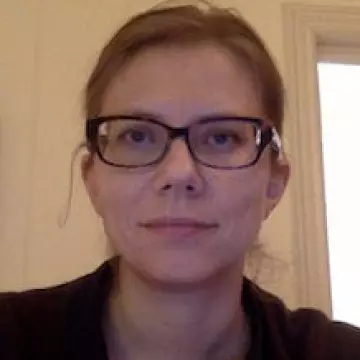
Plan S needs to work with the scientific journals, not against them
Open Access. We believe that the full implementation of Plan S will create more problems than it solves in Norway.
OBS! Denne artikkelen er mer enn tre år gammel, og kan inneholde utdatert informasjon.
Plan S is now a topic of intense debate in Norwegian academia. According to Robert-Jan Smits, the European Commission’s special envoy for open access (see Nature, accessed 31 October 2018), it stands for «science, speed, solution, and shock». It aims to revolutionize the way we publish our research by making it immediately accessible to all for free.
Gone are the days when in order to consult an article we had to locate the journal, take the trip to the library, and hope for the volume to be in place, but the hurdles of online paywalls remain. Most of us have learned to work around them by sharing our articles freely with whomever asks us for them, by using free sharing platforms like academia.edu or research gate, and by accessing drafts of articles housed in institutional depositaries. These options do not represent an ideal solution, which is why we agree that it is logical to make scientific publication accessible for all.
Yet, we believe that the full implementation of Plan S will create more problems than it solves in Norway. The first problem is that Plan S has not been adopted by all of the countries participating in the European Research Council. Norway is in, but not Germany, Belgium, and the Netherlands. Others, like Sweden, have asked for extra time to consider their options. In effect, Plan S is a series of principles that member states can choose to adopt with variations (link to the Plan S principles). But the problem is that the rules (Plan S) are not universal.
If we are to move to a full Open Access system in Norway we need to get the university publishers and like-minded international publishers on board.
Gary Love and Véronique Pouillard
The second problem is that the core target for Plan S is a small group of big publishing firms like Elsevier and Taylor & Francis, which earn large sums by charging hefty subscription prices to the universities. The fact that our universities are already paying for the researching and the writing of articles means that this extra charge is problematic, but these firms are big multinationals and without a global constituency Plan S cannot live up to what it stands for. Furthermore, not all journals and publishers are guilty of over-charging. This is particularly true of university presses like Oxford University Press and Cambridge University Press, which are charities and provide excellent platforms and services at reasonable prices. Those in favor of Plan S do not seem to acknowledge these different practices in the publishing landscape. Instead, they have enthusiastically embraced a radical ‘one shoe fits all’ approach that we judge to be needlessly destructive.
The third problem is that scholars in the countries that intend to comply with Plan S will be expected to comply with the drastic constraints that are inherent in its application. One fundamental point was highlighted by the rector of the University of Oslo Svein Stølen who argued that by forcing researchers to publish only in open access journals Plan S contradicts freedom of publication. This contrasts with the view of the rector of OsloMet Curt Rice who has taken a hardline position on Open Access publishing in Norway. He has argued that the Norwegian registration and reward system should only recognize Open Access journals following the implementation of Plan S in Norway. This would undoubtedly have a dramatic effect and force all academics in Norway to alter their publishing practices overnight if they wanted to succeed in the Norwegian academy. One could resist and become an outsider, but at what cost and for how long?
While it is laudable to pressure publishers like Elsevier and Taylor and Francis to change their business models, we believe that the experts working on the implementation of plan S need to consider carefully the business plans of all firms. We fear that smaller university presses will be damaged while Elsevier et al. may have enough assets to sail through and adapt. More importantly, let us not underestimate the value of existing journals both in terms of added value during the production process (curation, peer review, copy editing, formatting, marketing etc) and their importance for creating academic communities.
How are we to locate relevant work in our fields in a radically transformed Open Access landscape, which has barely taken root? Academic communities and traditions are often built around journals Some are also associated with important international conferences. Journals are certainly used today as signifiers of potential quality because they have gained reputations for rigorous peer review. Alternatives like Plan R seem to be a threat to this standard and they are surely not realistic in the Humanities. What are the other options? Lots of fragments of uncurated text processed by algorithms? This may be attractive to some, but it comes with significant losses. The Open Access ‘mega journal’ is one solution, but it still contributes to the fragmentation of existing research fields and undermines a sense of academic community in these fields.
We are also concerned that a move to Plan S or a radical Open Access model will undermine meritocracy both in relation to the job market and career advancement in Norway. In other countries the same levels of funding will not be available for universities to pay article processing charges, meaning that either those countries will not adopt these measures in an absolute form or they will only pay the charges of their ‘best’ staff (certainly not temporary staff). This would be unfortunate and it might be very damaging for scholars in the less affluent countries and less wealthy universities: in a nutshell this creates inequality.
A rash move to dump the publishers is not the answer because it would mean that already over-stretched academics would have to devote more time to administration rather than research. We are involved on the boards of open access journals or have colleagues who are launching new open access journals. As seducing as it is to imagine that we can engage in founding our own open access journals, it is a gigantic task. Most academics simply do not have the time to found and run journals on their own and universities will not pay their staff to manage the process.
As it stands, Plan S would be detrimental to our freedom of publication. Equally problematic is the economic idea that grounds Plan S because it stands for «science, speed, solution, and shock». Using the public sector to «shock» the market into reforming its behavior is one way to intervene and to try to bend capitalism to our will, but the idea of creating a shock does not take into account the most vulnerable players in our current research ecosystems. The plan is detrimental to the young researchers building their track record in this time of transition, to the medium and small presses, notably smaller university presses, and to the universities and researchers who will not be able to pay for open access. Furthermore, if Plan S is applied as of now it will challenge the recent push in Norwegian academia towards internationalization, as well as the full participation of academics in Norway in their respective international research fields.
If we are to move to a full Open Access system in Norway we need to get the university publishers and like-minded international publishers on board, or high-quality journals need to be established very quickly in all fields before an extreme solution is imposed (this seems to be an impossible task). Otherwise, the outcome could be damaging for Norwegian universities and detrimental to our academic research. It is possible for better solutions to be found. Ole Martin Moen and Aksel Braanen Sterri propose an alternative plan that would also include the experience of the scientific journals. To remain with concrete examples, the British Royal Historical Society has now launched an Open Access monograph series with no embargo periods or processing charges. Crucially it maintains existing standards of curation, peer review, copyediting, and formatting, and its reputation for excellence will be maintained without the need for a revolution.







Logg inn med en Google-konto, eller ved å opprette en Commento-konto gjennom å trykke på Login under. (Det kan være behov for å oppdatere siden når man logger inn første gang)
Vi modererer debatten i etterkant og alle innlegg må signeres med fullt navn. Se Khronos debattregler her. God debatt!